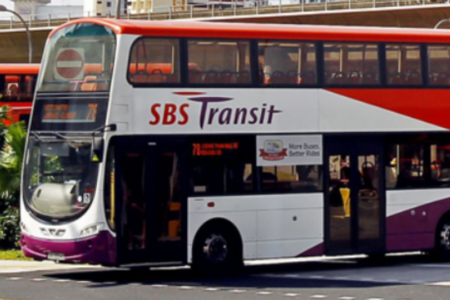In a surprise announcement, United Overseas Bank Ltd (SGX: U11), or UOB, has entered an agreement to acquire Citigroup’s (NYSE: C) consumer banking business in four countries — Malaysia, Indonesia, Thailand, and Vietnam.
The purchase will include the US bank’s unsecured and secured lending portfolios, wealth management unit, and retail deposits business.
Back in April last year, Citigroup had announced that it was exiting 13 international markets for its consumer banking business and focus on just four core markets — Singapore, Hong Kong, London, and the United Arab Emirates.
Bloomberg then reported in October that DBS Group (SGX: D05), UOB and Standard Chartered Bank (LON: STA) were planning to bid for these assets.
This acquisition comes 17 years after the bank’s last acquisition of Indonesian Bank Buana back in 2005.
With this acquisition, UOB hopes to accelerate its retail banking business growth in the ASEAN region.
Here are four things that investors should know about this transaction.
1. A fair consideration
UOB will fork out approximately S$4.915 billion for this acquisition, comprising the S$4 billion aggregate net asset value of Citigroup’s business plus a premium of S$915 million.
The assets were acquired at a price-to-book (P/B) ratio of around 1.2 times, which is in line with UOB current P/B valuation of around 1.24 times.
The consumer portfolio in these four countries held around S$9.1 billion of loans, S$6.2 billion of deposits and S$6.7 billion of assets under management (AUM) as of 30 June 2021.
UOB will also be acquiring an estimated 2.4 million customers, along with 24 branches and more than 5,000 employees.
2. Accelerating its customer growth
With this acquisition, UOB will greatly accelerate the growth of its customer base within these four countries.
Originally, the lender had planned to double its customer franchise within five years but with this acquisition, its customer base has jumped from around 2.9 million to 5.3 million, putting its goal within reach much earlier.
Citigroup’s customers also help to augment UOB’s current base in each of the three tiers of upper mass, emerging affluent, and affluent.
The emerging affluent segment will see the sharpest growth, with its customer base soaring by 170% from 100,000 to 270,000.
The upper mass segment will enjoy an 81.5% boost to 4.9 million customers while the affluent division will see a 33.3% boost to its customer base.
In terms of geography, UOB will double its Indonesian customer base to 1.2 million while also significantly boosting its Vietnam division from just 50,000 customers to around 200,000 customers.
3. A financially-attractive deal
The deal will add on around S$1 billion in incremental income for UOB.
For context, the bank generated around S$7.4 billion worth of total income in the first nine months of 2021.
The additional income makes up roughly 10% of the annualised total income for UOB.
Total income for the four countries involved in the acquisition, however, will jump by 40% while gross loans for the quartet will climb by 20%.
At the group level, gross loans will increase by just 3%.
The transaction will immediately add to the group’s earnings per share and return on equity if one-off transaction costs are excluded.
If the transaction costs, which are expected to be incurred over two years, are included, then the deal will only add to the lender’s profit from 2023 onwards.
UOB has reiterated that it intends to maintain its current dividend policy of a 50% payout ratio.
4. Expanding its business segments
Citigroup’s strengths are complementary to UOB’s and can drive growth in the latter’s business franchise.
UOB has expertise in funding, secured loans, and wealth management while Citigroup is strong in unsecured lending.
By combining the two, UOB will gain an additional revenue stream from Citigroup’s burgeoning unsecured lending division.
UOB is targeting to raise the return on its risk-weighted assets by more than 0.3% once the acquisition closes.
Get Smart: Scaling up its Asian ambition
UOB’s acquisition promises to help scale up its Asian ambition.
The purchase will significantly boost its customer base in the ASEAN region and also help it to grow its unsecured lending division.
UOB intends to tap on its TMRW digital platform to create an omnichannel platform to deepen its engagement with its clients.
The acquisition is conditional on obtaining regulatory approvals relevant to each country and completion will take place between mid-2022 and early 2024.
UOB continues to believe in Southeast Asia’s immense long-term growth potential as GDP for the region is forecast to more than double from US$3.1 trillion in 2020 to US$6.3 trillion by 2030.
Over the past 2 years, Singapore ramped up healthcare spending by S$7.5 billion. This increase is the same as that of the last 10 years! For healthcare stocks with Asian exposure, this represents a massive opportunity for growth. What are these stocks? Find out in our upcoming webinar “Asia’s Healthcare Moment.” Let us show you some of the strongest contenders in the healthcare sector in 2022. Click here to register a FREE seat!
Follow us on Facebook and Telegram for the latest investing news and analyses!
Disclaimer: Royston Yang owns shares of DBS Group.





